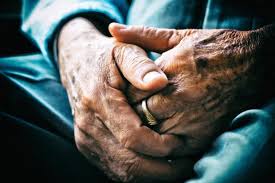
In a sad report released by Japan’s National Police Agency, alarming statistics reveal a troubling trend. In the first half of 2024, 37,227 individuals living alone were found dead in their homes. This situation highlights a growing concern about social isolation among the elderly.
The statistics are striking. Approximately 70% of those who died alone were aged 65 or older. This demographic represents a significant portion of Japan’s aging population. Sadly, nearly 4,000 of these individuals were discovered more than a month after their passing. Even more distressing, 130 people went unnoticed for an entire year.
While about 40% of those who died alone were found within a day, the report emphasizes the stark reality of delayed discoveries. This indicates a serious issue regarding the welfare of individuals living alone. Many of these deaths could potentially have been prevented with better social support systems in place.
Social isolation is a growing concern in Japan. As the country grapples with an aging population, more individuals live alone. Unfortunately, this can lead to loneliness and neglect. Family structures have changed, and many elderly people lack regular contact with relatives or friends. This isolation can have dire consequences.
The report serves as a wake-up call for society. Communities must be aware of their vulnerable members. Neighbors, friends, and local organizations must work together to ensure no one is left alone. Regular check-ins can make a significant difference in the lives of those struggling.
Various initiatives are being proposed to address this issue. Local governments are exploring ways to create support networks for elderly individuals that can provide companionship and assistance. Additionally, community outreach programs can help identify those at risk of social isolation.
Moreover, the government is considering policies to encourage families to stay connected. Encouraging regular visits and communication among family members could help combat loneliness. Furthermore, technology can play a role. Simple tools like video calls can help bridge the gap for those who cannot visit in person.
In conclusion, the recent statistics regarding deaths of individuals living alone in Japan are alarming. With thousands found dead long after their passing, it is clear that action is needed. Society must come together to support those who are isolated. By fostering connections and creating supportive environments, we can help prevent future tragedies.
This issue is not just a statistic; it is a human tragedy. We must remember that behind each number is a life that matters. As Japan ages, it is vital to prioritize the well-being of all citizens, especially the elderly. We can make a difference by reaching out and ensuring no one is left alone.




